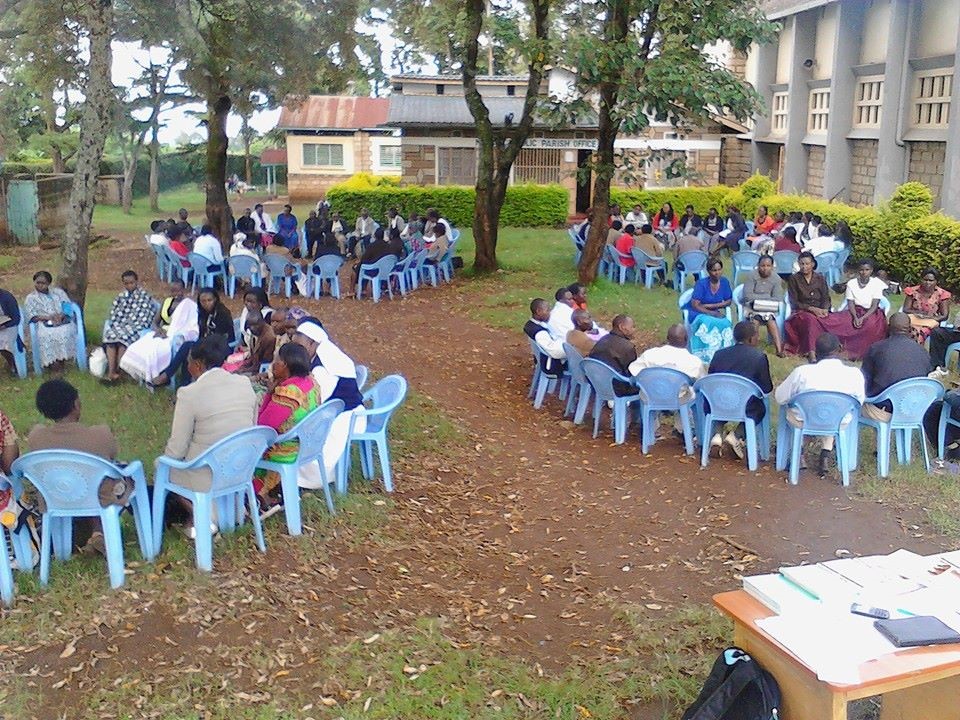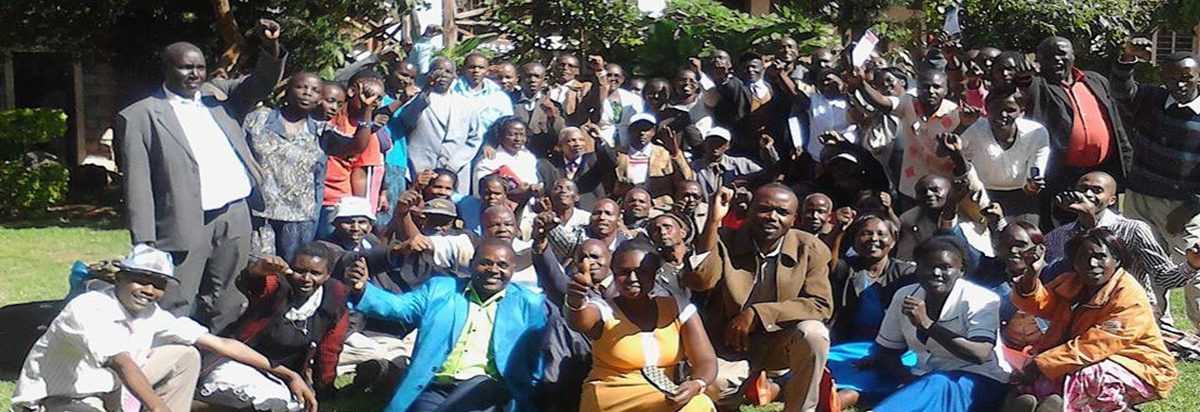The gospel of Jesus Christ is a fountain of renewing the church’s mission and a welcome to all. There are contemporary challenges in evangelization that get in God’s Word assured providence to Christians. An encounter of hearts, diversity in the church’s existence and mission is deeply experienced in the sccs.
In AMECEA (association of Member Episcopal Conferences of Eastern Africa) region the notions of love, joy, peace and justice gain theological and practical meaning only in the context of community, precisely of Small Christian Communities (SCCs). In AMECEA region there is formal, deliberate, conscious and extensive effort to promote and sustain SCCs as a foundation of evangelization. Which means that, in Africa, SCCs have not only been a theoretical idea but a practical mission, a way of life for the parish? Therefore, in AMECEA SCCs have also enjoyed pastoral application.
SCCs are therefore a place of Christian hospitality and a context of witnessing to the Gospel of Jesus Christ. They are also understood as the privileged loci for practical realization of the theological characteristics of evangelization that Pope Francis enumerates in his exhortation: namely, love, joy, peace, justice and the common good. They are also the places where the evangelical virtues of faith, hope and charity, mentioned by St. Paul in 1 Cor 13 achieve concrete expression.
Small Christian community is a group of 5-8 families or about 20 individuals who come together and meet on weekly basis to share the Word of God and they usually meet in their homes.
SCCs promote prayer life and reverence for God, sharing and celebration of life, nurturing vocations and ministries and integral development for all.
A small Christian community is characterized by the following activities:
- Ensuring greater knowledge of the word of God (weekly based faith sharing).
- Providing social commitment in the name of the gospel (service to reconciliation, justice and
Peace).
- Provide new lay services (new inculturated lay ministries).
- Provide education in faith for adults (adults’ faith formation).

History of SCCs as the AMECEA pastoral priority:
AMECEA which consists of Kenya, Ethiopia, Eritrea, Malawi, Sudan, South Sudan, Uganda, Tanzania and Zambia was founded in 1961. From that time the bishops of AMECEA desired to imbue the African cultures with the message of the Gospel and build an ecclesial model that is truly local, self-reliant, self-ministering and self-propagating. During the AMECEA plenary assembly of 1973, in Kenya, the bishops said:
“We are convinced that in these countries of eastern Africa, it’s time for the church to become really “local”. We believe in order to achieve this we have to insist on building church life and work on the small communities.” (AFER 16/1-2, P.4).
In the spirit of second Vatican council, the bishops of AMECEA, during their plenary assembly of 1976 in Malawi, resolved that the systematic formation of SCCs should be the key pastoral priority in the years to come within Eastern Africa. They said:
“In most parts of Eastern Africa, people live, act and interact on the level of smaller communities, villages, town compounds or work communities. We should make sure that we take these natural communities as the basis for the insertion of life and work of the church.” (AFER 18, 1976).
The bishops explained that SCCs are the local incarnation of the Biblical model as was lived by the early church when the believers of Christ came together for prayer, breaking of bread and collecting material goods to support the needy in their midst(cf. Acts 2:42-47).
Since 1976 to today, the bishops of AMECEA recommended that every diocese in AMECEA region forms SCCs in various levels as a pastoral tool of evangelization.
Since then the bishops have remained committed to the building of the church around SCCs as a way of making the church, like Christ, to become incarnate in daily life of the people. In this way, at every level, every Christian community will represent the fullness of the church, which is the body of Christ.
Through the SCCs, the lay people are empowered to be active participants in the church’s work of evangelization, proclamation of the Word of God, celebration of community prayer and sacraments, formation of others in faith and offering service through care for those who are in need.
In the synods of the church in Africa, the bishops of Africa defined the church as the family of God. This image of the church describes and emphasizes the core values of African communities of care for others, solidarity, warmth in human relationship, acceptance, dialogue and trust which are the characteristics of SCCs. The small communities in our parishes help in fostering closer human relationships.

